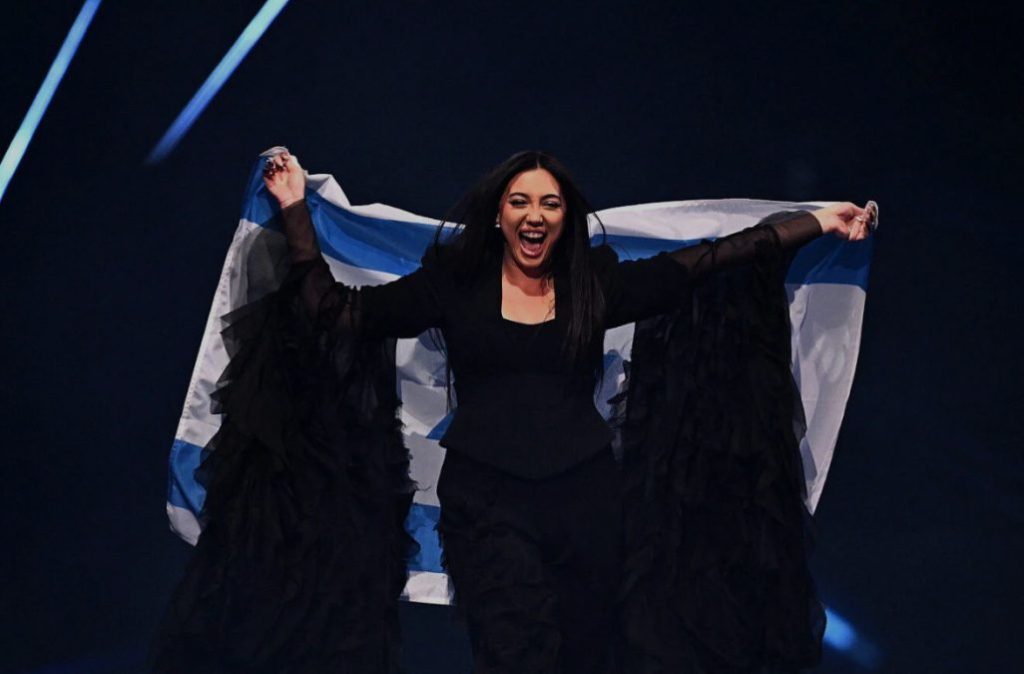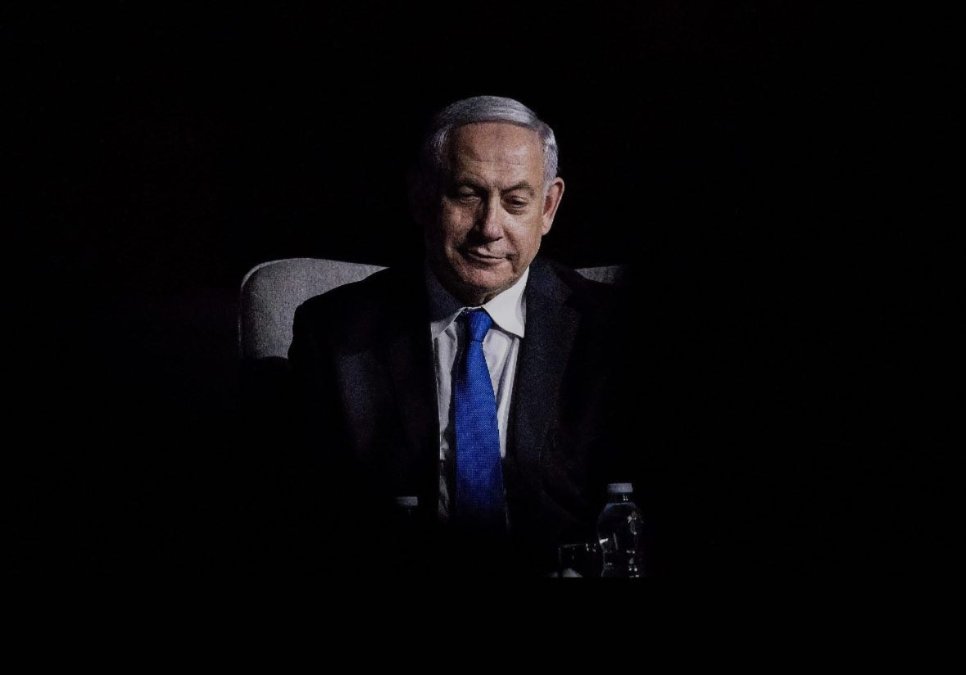Netanyahu under pressure from artists and European leaders, Eurovision has turned into a diplomatic battleground
Netanyahu under pressure from artists and European leaders, Eurovision has turned into a diplomatic battleground
According to the Irangate News Agency, following the ongoing war between Israel and the Hamas group in the Gaza Strip, which has now entered its 24th month, the repercussions of this military conflict have significantly transcended the political arenas and have spread to global cultural, artistic, and sports domains.
In recent weeks, opposition to Israel’s policies during this war, especially in the public sphere of the West, has entered a new phase, from reactions of prominent artistic figures at prestigious international events to official requests from some countries to exclude Israel from competitions such as Eurovision and global sports events.
The increase in diplomatic and cultural pressures on Israel, alongside efforts by some European governments to recognize the state of Palestine, has once again raised the question of how far the boundary between politics and art can be drawn.
In this report, Irangate examines the new dimensions of this trend and the challenges facing one of Europe’s largest cultural events in the coming year.
Increase in cultural and artistic pressures on Israel following the continuation of the Gaza war
With more than two years having passed since the war between Israel and the Hamas group in the Gaza Strip, a wave of international criticism against the Israeli government has emerged in artistic, cultural, and sports fields.
These reactions have intensified in the public sphere of the West, especially at major events like television awards and music competitions.
In one of the latest manifestations of this pressure, several artists at the Emmy Awards ceremony in the United States criticized Israel’s policies, calling for support for Palestinian freedom and increased sanctions against this country.
This critical approach has also spread among Western cultural figures, especially in Hollywood, and last week, a number of cinema industry activists called for a halt to cooperation with Israeli-affiliated artistic projects and institutions, which they say are connected to the government or military of this country.
Governments’ stance from the realm of art to the political arena
These developments have also extended to the diplomatic arena. Pedro Sánchez, the Prime Minister of Spain, as the first leader of a Western country, has proposed banning Israel from all international sports competitions.
This stance is seen as a continuation of the Spanish government’s efforts to recognize the state of Palestine and align with other European countries critical of Israel, including Ireland and Slovenia.
Simultaneously, Israel’s participation in the Eurovision music competition has also become a new focal point of political and cultural disputes and tensions. The competition, set to be held in 2026 in Vienna, Austria’s capital, is already facing challenges regarding Israel’s participation.
Eurovision, a stage for protest or art

Countries such as the Netherlands, Spain, Ireland, Slovenia, and Iceland have threatened to withdraw from the future Eurovision event if Israel participates.
The Dutch broadcaster Avrotros, responsible for sending the country’s music representative to the competition, stated in a statement that the ongoing human suffering in Gaza does not align with Dutch values and also criticized Israel’s political interference in the previous edition of the competition.
In the 2025 Eurovision contest held in Basel, Switzerland, Israeli singer Yuval Raphael, despite not receiving high votes from the judges, secured second place with widespread public support. This led to speculation about the possibility of Israel organizing online campaigns to garner public support.
However, Israeli television emphasized that the result reflects the genuine popularity of the singer’s performance among Europeans, not a political outcome.
Raphael was a survivor of the Hamas attack on the Nova Music Festival in October 2023, an attack during which dozens of Israelis were killed or taken hostage. His participation in the 2025 competition was supported directly by Israeli security agencies, coinciding with daily protest demonstrations in Switzerland against the continuation of the war in Gaza.
Collective threats for boycott: Has the domino effect of withdrawal begun?
Following the initial countries’ stance, some other participating countries have also expressed doubts about Israel’s presence. Belgian television announced that it would make the final decision regarding participation in the 2026 competition by the end of the current year.
On the other hand, the previous Austrian winner artist also announced that he wishes the next Eurovision to be held without Israel’s presence, but left the final decision to the organizing union.
However, the four main financial supporters of Eurovision—France, Germany, the United Kingdom, and Italy—have not yet announced their official stance on Israel’s presence.
In the United Kingdom, some artistic figures like Phil Coulter have called for their country to join the boycott, but the BBC, as the responsible entity, has remained silent.
Israel’s response and the organizing union
In response to this wave of opposition, Israeli media have reported that the European Broadcasting Union (EBU) has asked Israel to voluntarily not participate in the competition next year or at least appear under a neutral flag.
This claim was denied by EBU officials, who stated that no final decision regarding Israel’s participation has been made yet and consultations with members are ongoing.
Golan Yochpaz, Director General of Kan Israel Network, stated that Israel sees no reason to be excluded from this event, and the country’s successful history in Eurovision shows that Israel is an inseparable part of this cultural competition.
Eurovision, a test for the boundary between politics and art
The history of Eurovision shows that this competition has always been subject to the political and social influences of its time.
For example, following Russia’s military attack on Ukraine in 2022, this country was banned from participating in Eurovision. Also, Turkey has withdrawn from this competition by its own decision since 2013, and after Israel’s victory in 2018, criticisms were directed at it by Recep Tayyip Erdoğan, the President of Turkey.
However, Israel, with a history of over half a century in these competitions, has been declared the winner four times.
From its first participation in 1973 to the victories in 1978, 1979, 1998, and 2018, this country has always sought to present itself in the cultural framework of Eurovision.
But now, in the shadow of war and increasing global criticism, the future of Israel’s presence in Eurovision is shrouded in uncertainty. The main question is whether Eurovision, as an artistic event that traditionally calls itself non-governmental and non-political, can remain neutral in the face of increasing political pressures.
What happens next?
The political and human tensions resulting from the ongoing war in Gaza have unprecedentedly impacted the artistic space of Europe and the world. Cultural, artistic, and diplomatic reactions to Israel’s participation in events like Eurovision reflect the deep political and social divide in Europe.
In the coming months, the final decision of the European Broadcasting Union regarding Israel’s presence could affect not only the fate of this competition but also Israel’s cultural standing in Europe and beyond.

